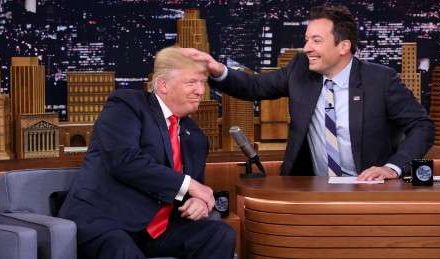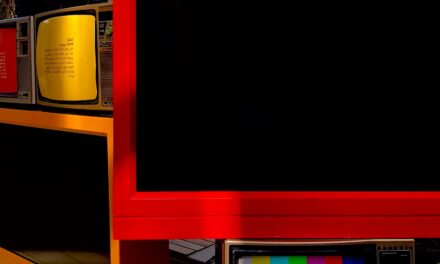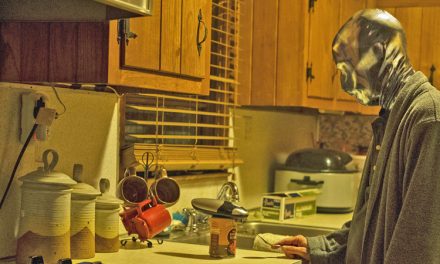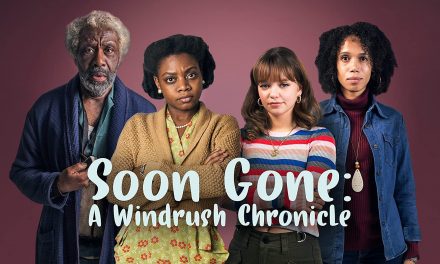Editors: Bas Agterberg, Lisa Kerrigan, Dana Mustata, Alistair Scott
This special issue of VIEW Journal of European Television History and Culture explores creative ways in which media scholars, archivists and practitioners can expand on the possibilities that broadcast archives hold for historical knowledge production. At a time when sustained attention goes to exploring the possibilities that artificial intelligence, machine-learning and algorithmic data processing hold for archival knowledge production, we want to turn our focus to creative forms of scholarship and imaginative modes of historical knowledge production. We believe that such practices can transpose and augment broadcast archives, filling in their gaps or rendering visible their structural power differentials and (past) inequalities. This special issue of VIEW invites contributions that do and write media history differently by way of experimenting with broadcast archives. We encourage experimental contributions that – through their creative and imaginative thinking – lend themselves to different readings with, against or along the archival grain, open up space for (self-)reflexivity, enable possibilities for breaking open the biases, exclusions and oversights that run through the archives, and shine a light on the ‘darkrooms’ and ‘historical negatives’ of archival formations (Stoler, 2008).
This special issue follows up on the seminar ‘Rethinking Broadcast Archives: Dig, Deconstruct, Display’ that the Media Studies Commission of the International Federation of Television Archives FIAT/IFTA organised at the BFI in London on 8 December 2023. The event brought together scholars working with broadcast archives from a variety of theoretical, methodological and hands-on approaches. At the time of the seminar, we wanted to shine a light on the value of academic research for broadcast archives, building upon the premise that archives are situated sites of knowledge that are in a constant state of ‘becoming-with’ (Haraway 2016), constantly being made and re-made as they lend themselves to renewed interpretations of the past and new imaginings for the future. We specifically wanted to make space for those historical narratives, archival practices and critical discussions of broadcast archives that bring into relief what remains overlooked, marginalised, glossed-over and often unattended to in the archives.
In this special issue, we would like to take our aims further. In addition to calling attention to specific historical narratives that address the politics of archives, their gaps, silences or biases as well as the politics of access to/in the archives, we would also like to foreground creative forms of television history writing as well as experimental modes of engaging with and being in dialogue with the archives. We believe that such creative and experimental approaches to archive-based television histories can push the envelope of our current understandings of the potentialities for research that archives hold. Experimentation, creativity and imagination in archive-based television research remain the driving motors behind the novelty of thought that oftentimes informs our revisiting and renewing of disciplinary paradigms and historical narratives. They may as well be what makes up the fertile ground that lives in the ‘contact zones’ where processes of ‘becoming with’ occur, where new understandings of the archive and new ways of engaging with the past emerge, and where archival transformations happen.
In a previous issue of VIEW ‘Race and European Television Histories’, editors Sudeep Dasgupta and Anikó Imre looked at “television’s specific roles in visualizing, naturalizing, subverting and silencing race in Europe”, wanting to “break the silence and begin to describe, both retroactively and with a look to the future”, television’s roles in such phenomena (2020, p.1). In this issue, we question how silences, inequalities of power or potentialities for subversion live in the archives and how these can be explored through creative practices and experimental approaches to television history.
For this special issue of VIEW, we invite contributions that focus on creative forms of television history writing carried out in dialogue with the archives, contributions that foreground meaningful experiments in/with the archives as well other imaginative forms of television historical knowledge production. Such experimental and creative practices can be approached as a ‘knowing method’ (Morrison & Rantala, 2022) and mined for their potential to tap into unexplored possibilities that broadcast archives hold for historical knowledge.
Making a plea for creative forms of historical writing, James Goodman – the editor of Rethinking History: The Journal of Theory and Practice – challenged traditional forms of writing history, arguing: “The trouble is when […] [they] are not just the default but the only imaginable forms, the only possible forms, and the only publishable forms” (2010, p. 2). With this in mind, we encourage contributors to engage with broadcast archives and historical research in imaginative ways. Interdisciplinary is encouraged. Anthropological and ethnographic approaches to the study of television history and broadcast archives can, for instance, explore issues of voice and truth in the knowledge production of others, foregrounding self-reflexivity about one’s positioning to what and who is being studied. In that sense, the work of documentary filmmaker and postcolonial feminist scholar Trinh Minh-ha (1982; 1989) may serve as inspiration for experimenting with the polyvocality of the archives. Other creative approaches to history can serve as points of departure for engaging with the archives in ways that expand on them or probe their limitations. For instance, Saidiya Hartman (2021) used ‘critical fabulation’ as an artistic intervention in historical research in order to open up possibilities for writing histories “with and against the archive”. Diana Taylor (2003) showed how historical knowledge is also embodied and can be stored and transmitted through performances and other performative acts, in ways that offer alternative perspectives on institutionalised archives and help revisit historical narratives. Historian Carolyn Steedman (2007) engaged in the historical reconstruction of a female servant’s life in late 18th century England by piecing together archival documents with fictional insights from Emily Bronte’s Wuthering Heights that allowed for the imaginative reconstruction of the woman’s inner life. In media historical research, historical reenactment has been proposed as a way of ‘experiencing history’ in ways that allows for access to “the “tacit knowledge” involved in the use of media technologies”, for the “sensorial appropriation of the past”, and for a historical understanding of the materiality of the media beyond a discursive level (Fickers & van den Oever, 2022, p. 19).
We are interested in – though not to limited to – the following:
- practice-based historical research that is carried out in dialogue with broadcast archives.
- historical narratives that lend themselves to polyvocality and multivalence by shining a light on the multiple points of view in and outside the archive;
- contributions that address unexplored, obscured or marginalised knowledge by means of creative, imaginative and experimental engagements with broadcast archives;
- historiographical pieces that reflect on the dialogic relations between media scholars, archivists and the archival object in the production of historical knowledge;
- contributions that approach historical knowledge through the lens of vernacular archiving practices and discuss these in dialogue with institutionalised broadcast archives;
- creative writing historical pieces and artistic audiovisual essays that address biases, omissions, oversights and inequalities in the archives and in doing so, they produce historical knowledge that expands on, fills in the gaps or breaks open institutionalised archives’.
Submission details:
We invite submissions from media scholars, broadcast historians, audiovisual archivists and archive-based media practitioners. Authors can specify in their proposal the format of their contribution. We accept academic research articles (3000 – 6000 words), audiovisual essays, as well as other artistic contributions in written or audiovisual form. Contributions that diverge from the standard academic writing style are encouraged. A newly minted section in the journal called ‘Enthusiasms’ has been designed to accommodate such contributions. Authors are also encouraged to send in a short biography with their proposal.
Proposals (max. 500 words) should be submitted to journal@euscreen.eu by November 29, 2024. Please copy d.mustata@rug.nl to your email.
A notice of acceptance of abstracts will be sent to authors in the third week of December 2024.
Full contributions will be due on April 17, 2025. Authors can consult the submission guidelines for full contributions here.
All contributions will be peer-reviewed. The issue is scheduled for publication by December 2025.
Questions about the issue can be directed to d.mustata@rug.nl.
References:
Andreas Fickers, Annie van den Oever, “Experimental Media Archaeology: A Plea for New Directions” in Doing Experimental Media Archaeology: Theory, ed. Andreas Fickers & Annie van den Oever (Berlin, Boston: De Gruyter Oldenbourg, 2022), 18-29.
Ann Laura, Stoler, Along the Archival Grain: Epistemic Anxieties and Colonial Common Sense (Princeton: Princeton University Press, 2008).
Carolyn Steedman, Master and Servant: Love and Labour in the English Industrial Age (Cambridge: Cambridge University Press, 2007)
Diana Taylor, The Archive and the Repertoire: Performing Cultural Memory in the Americas (Durham: Duke University Press, 2003)
Donna Haraway, When Species Meet (Minneapolis and London: University of Minnesota Press, 2008)
James Goodman, “Editorial: History as Creative Writing”, Rethinking History, Vol. 14, no. 1, 1–3.
Kevin Morrison, Pälvi Rantala, “Introduction. Methods of Knowing”in Historical Research, Creative Writing, and the Past : Methods of Knowing, ed. Kevin Morrison, Pälvi Rantala (New York, NY: Routledge, 2023), 1-12.
Saidiya Hartman. Wayward Lives, Beautiful Experiments : Intimate Histories of Social Upheaval (New York, NY: W.W. Norton & Company, 2019)
Sudeep Dasgupta, Anikó Imre, “Editorial: Race and TV in Europe. An Overdue Conversation”, VIEW Journal of European Television History and Culture, Vol. 10, Issue 20, 2021, 1-6.
Trinh Minh-ha, Reassemblage: From Firelight to the Screen (documentary, 1982).
Trinh T. Minh-Ha, Woman, Native, Other : Writing Postcoloniality and Feminism. (Bloomington: Indiana University Press, 1989)





